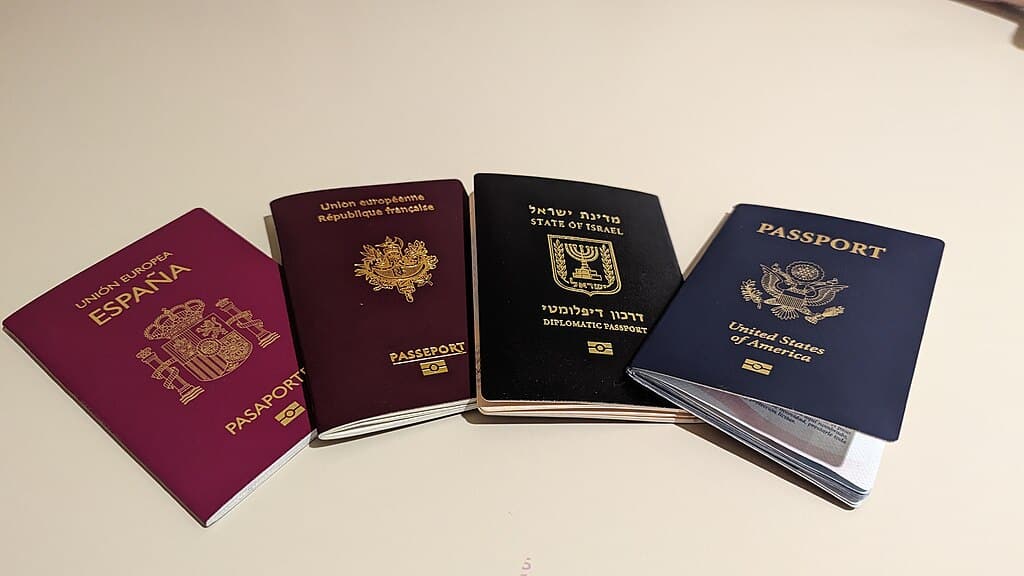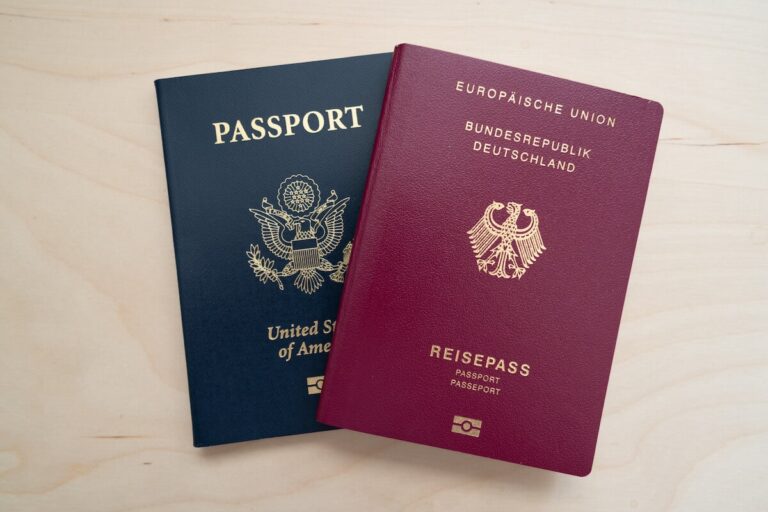A second passport opens doors to new opportunities, enhanced travel freedom, and financial security. But obtaining dual citizenship requires careful planning, significant investment, and understanding complex legal requirements.
Many people dream of having multiple passports, but few understand what dual citizenship actually entails. A second passport represents more than just an additional travel document—it’s a pathway to expanded global mobility, business opportunities, and personal security.
Whether you’re seeking better travel access, tax optimization, or a backup plan for uncertain times, dual citizenship offers tangible benefits. However, the process varies dramatically depending on your circumstances, chosen country, and current nationality.
This guide explains everything you need to know about second passports, from eligibility requirements to costs and potential drawbacks. By the end, you’ll have a clear understanding of whether pursuing dual citizenship aligns with your goals and situation. Additionally, the guide provides practical tips for the application process, including essential details like what to wear for passport photos to ensure you meet specific guidelines. Understanding these nuances can help streamline your experience and avoid common pitfalls. Armed with this knowledge, you’ll be better prepared to navigate the complexities of obtaining a second passport.
Understanding Second Passports and Dual Citizenship
A second passport is an official travel document issued by a country where you hold citizenship, in addition to your birth country’s passport. Dual citizenship means you’re legally recognized as a citizen by two different nations simultaneously.
Each passport grants you the same rights and privileges as any other citizen of that country. This includes the right to live, work, vote, and access social services. You can travel using either passport, though some restrictions may apply depending on your destination and the relationships between countries. Additionally, when applying for passports, many people wonder about the rules regarding photos, particularly the common question: can you smile in passport photos? While some countries have specific guidelines that require a neutral expression, others may allow a subtle smile, so it’s important to check the regulations beforehand. Ensuring your passport photo meets the necessary criteria can save you time and avoid delays in your application process.
Not all countries allow dual citizenship. Some nations require you to renounce your original citizenship when acquiring a new one. Before pursuing a second passport, verify that both countries involved permit dual nationality.
The terms “second passport” and “dual citizenship” are often used interchangeably, but they have subtle differences. Dual citizenship refers to your legal status, while a second passport is the physical document that proves this status.
Ways to Obtain a Second Passport
Several pathways exist for acquiring dual citizenship, each with specific requirements and timelines.
Citizenship by Descent
Many countries offer citizenship to individuals with qualifying ancestry. If your parents, grandparents, or even great-grandparents were citizens of certain countries, you might be eligible for citizenship by descent.
Ireland, Italy, Poland, and Germany have particularly generous ancestry-based citizenship programs. The documentation requirements vary, but you’ll typically need birth certificates, marriage certificates, and other records proving your family connection.
This route often provides the most affordable path to a second passport, requiring only document fees and processing costs rather than substantial investments. Additionally, many individuals find that obtaining a second passport through this route allows for greater travel flexibility and access to countries that may have entry restrictions. The large passport book benefits further enhance this experience, providing additional pages for visas and stamps, which is particularly advantageous for frequent travelers. As a result, this option not only saves money but also enriches one’s travel opportunities. Moreover, individuals considering their travel needs may benefit from evaluating a passport card vs book comparison, as each option serves distinct purposes. The passport card is convenient for land and sea travel within certain regions, making it a practical choice for quick trips, while the passport book is essential for international air travel. This comprehensive approach ensures that travelers are well-equipped for various journeys, maximizing their overall travel experience.
Citizenship by Investment
Citizenship by investment programs allow you to obtain a second passport through financial contributions or investments. These programs offer the fastest route to dual citizenship, typically completed within 3-6 months. The appeal of citizenship by investment programs lies not only in the speed of obtaining a second passport but also in the potential benefits of global mobility, tax advantages, and enhanced security. Individuals often inquire, “how long is the passport process,” as the assurance of a quick turnaround is a significant factor in their decision-making. Furthermore, many countries offer these programs with varying investment thresholds, allowing applicants to choose an option that aligns with their financial goals.
Popular citizenship by investment destinations include:
- Caribbean nations: Antigua and Barbuda, Dominica, Grenada, St. Kitts and Nevis, and St. Lucia offer programs ranging from $100,000 to $250,000
- European options: Malta and Cyprus provide EU citizenship through investment, though requirements are significantly higher
- Other regions: Vanuatu, Turkey, and Jordan also maintain active investment citizenship programs
Each program has specific investment requirements, such as real estate purchases, government donations, or business investments. Due diligence fees, legal costs, and processing fees add to the total expense.
Residency Leading to Citizenship
Many countries offer citizenship after maintaining legal residency for a specified period. This naturalization process typically requires 3-10 years of continuous residence, depending on the country.
Portugal’s Golden Visa program allows residency through property investment, leading to citizenship after five years. Spain offers citizenship after 10 years of residency, reduced to two years for Latin American citizens.
These programs require a longer time commitment but often cost less than direct citizenship by investment options.
Marriage and Family Connections
Marrying a citizen of another country can provide a pathway to citizenship, though the process varies significantly by nation. Some countries grant immediate citizenship rights to spouses, while others require several years of marriage and residency.
Family reunification programs also exist for individuals with citizen children or other qualifying family members.

Benefits of Having a Second Passport
Dual citizenship provides numerous advantages across travel, business, and personal security domains.
Enhanced Travel Freedom
A second passport can dramatically expand your visa-free travel options. While a US passport allows visa-free access to 186 destinations, combining it with an EU passport could increase your travel freedom significantly.
Different passports perform better in different regions. A Caribbean passport might offer better access to certain South American countries, while a European passport provides seamless travel throughout the EU.
Having two passports also provides backup documentation when traveling. If one passport is lost, stolen, or held by authorities, you can continue traveling with your second passport. Additionally, having a second passport can facilitate smoother entry into countries that may have specific entry restrictions or visa requirements. This can be especially beneficial for frequent travelers who often need to provide various travel documents for international trips. Ultimately, the convenience of holding two passports can enhance overall travel flexibility and peace of mind.
Business and Investment Opportunities
Certain citizenships unlock business opportunities unavailable to foreign nationals. EU citizenship allows you to establish businesses anywhere in the European Union without foreign investment restrictions.
Some countries offer preferential treatment to their citizens for government contracts, business licenses, or professional certifications. A second passport can open doors to industries or opportunities restricted to foreign nationals.
Banking and financial services may also be more accessible with certain citizenships, particularly in today’s climate of increased banking restrictions for some nationalities.
Tax Optimization and Financial Planning
While citizenship doesn’t automatically change your tax obligations, it can create opportunities for legal tax planning strategies. Some countries don’t tax foreign-sourced income for non-resident citizens.
However, tax planning with multiple citizenships requires careful professional guidance. US citizens, for example, must report worldwide income regardless of where they live or what other citizenships they hold.
Personal Security and Backup Plans
Political instability, economic uncertainty, or personal safety concerns make second citizenship valuable as a backup plan. A second passport provides options if conditions in your home country deteriorate.
During international crises, having multiple citizenships can provide additional consular support and evacuation options. Different embassies and consulates may offer varying levels of assistance depending on the situation.
Potential Drawbacks and Considerations
Second passports aren’t suitable for everyone and come with potential complications.
Financial Costs
Obtaining a second passport requires significant financial investment. Citizenship by investment programs cost hundreds of thousands of dollars, while even ancestry-based applications involve legal fees, document costs, and processing expenses.
Maintaining dual citizenship may also create ongoing costs, such as tax filing requirements, passport renewal fees, or mandatory military service obligations.
Tax Complications
Multiple citizenships can create complex tax situations. Some countries tax citizens on worldwide income regardless of residence, potentially leading to double taxation scenarios.
The US taxes all citizens on global income, while countries like Eritrea impose diaspora taxes on citizens living abroad. Professional tax advice becomes essential to navigate these obligations properly.
Legal and Administrative Complexity
Managing dual citizenship requires understanding and complying with laws in multiple countries. Certain actions legal in one country might violate laws in another nation where you hold citizenship.
Some professions or government positions prohibit dual citizenship. Military service obligations may also apply in both countries, though most nations have agreements to prevent double military service requirements.
Travel Complications
While two passports generally enhance travel freedom, they can sometimes create complications. Some countries require you to enter and exit using the same passport, while others mandate that citizens use their national passport when visiting.
Border officials may question travelers carrying multiple passports, particularly if the countries involved have diplomatic tensions or conflicting foreign policies.
Is a Second Passport Right for You?
Several factors determine whether pursuing dual citizenship makes sense for your situation.
Consider your primary motivations. If you’re seeking enhanced travel freedom, research whether a second passport would meaningfully expand your visa-free destinations. For business opportunities, evaluate whether citizenship restrictions actually limit your current plans.
Assess your financial situation honestly. Citizenship by investment programs require substantial upfront costs, while residency-based routes demand years of time and ongoing expenses. Ensure you can afford both the initial investment and long-term obligations.
Examine your family circumstances. If you have children, dual citizenship affects them too. Some countries automatically grant citizenship to children of citizens, while others have more complex rules.
Research the specific requirements and obligations of your target country thoroughly. Some nations have mandatory military service, diaspora taxation, or other obligations that might outweigh the benefits.
